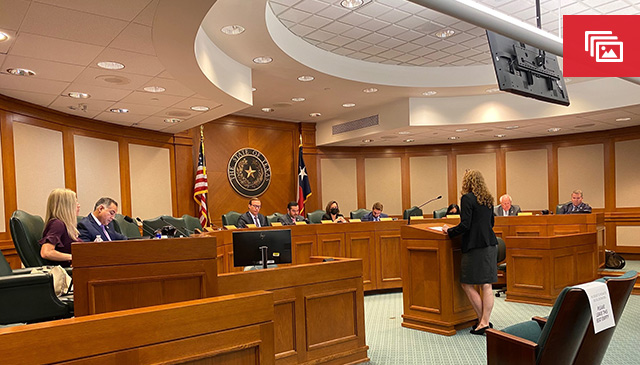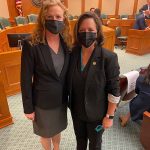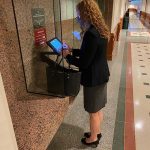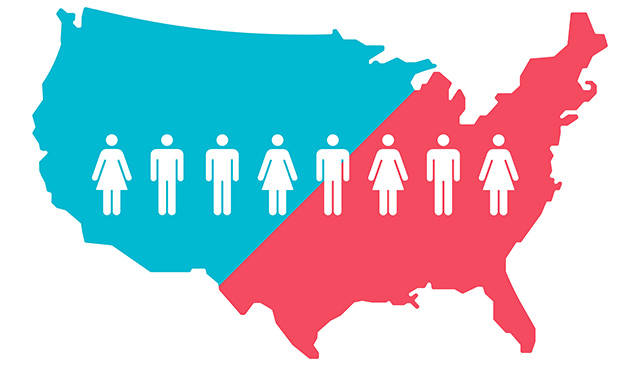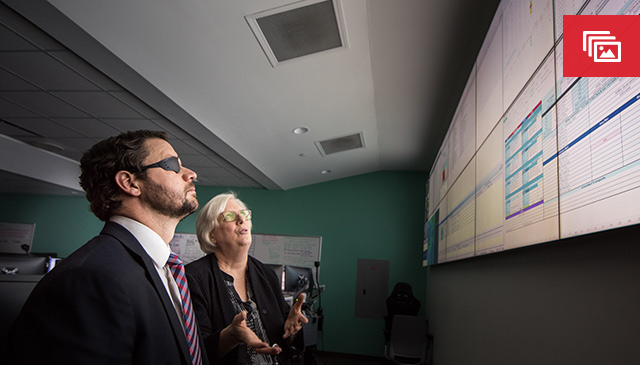February 17, 2020

Employees, patients and members of Texas Children’s entities are encouraged to take the 2020 Census. The effort to educate us is being led by The Section of Public Health Pediatrics and Community Benefits at Texas Children’s Hospital.
“Every 10 years, the census counts how many people live in each community to decide how much funding and representation in congress each community should receive,” said Cassie Jones, community initiatives coordinator. “An accurate census count means more programs and services will be available to the children and families we serve to support their full health and well-being.”
This funding supports everything from disaster recovery to higher education to road improvements to Medicaid funding.
“Texas Children’s is uniquely situated to reach hundreds of thousands of families and encourage them to complete the census,” Jones added.
She goes on to say that children under the age of five and low-income populations are often undercounted in the Census and it is estimated that communities miss out on $10,000 in funding for every person that is not counted. If children reside in more than one home, they should be counted where they stay most often, even if their parents don’t live there. If there is any confusion, children should be counted where they will be staying on Census Day – April 1st, 2020. For newborn babies still in the hospital on April 1, 2020, they should be counted at the home where they will live and sleep most of the time.
There are only nine questions and your responses cannot be shared with anyone. Every household in the United States should complete the census regardless of citizenship or immigration status. There are no questions about citizenship. For more information go to 2020 CENSUS.
Four easy ways to respond
Secure Internet: For the first time this year, the Census will be available online.
Respond by phone: Beginning March 1, 2020 the Census phone lines will be available at 1-800-923-8282.
Respond by mail: From March 12, 2020 through March 20, 2020 every home will receive an invitation in the mail to complete the Census. This information will explain how to complete the Census to help ensure our community receives the funding we need to help our patients, families, and community thrive!
In-Person interview: United States Census Bureau enumerators will visit residences that choose not to self-respond.
Important Census Dates
- March 12 – 20: Households will begin receiving official Census Bureau mail with detailed information on how to respond to the 2020 Census online, by phone, or by mail.
- March 30 – April 1: The Census Bureau counts people in shelters, at soup kitchens and mobile food vans, on the streets, and at non-sheltered, outdoor locations such as tent encampments.
- April 1: Census Day is observed nationwide. By this date, every home will have received an invitation to participate in the 2020 Census. Once the invitation arrives, you should respond for your home in one of three ways: online, by phone, or by mail. When you respond to the census, you’ll tell the Census Bureau where you live as of April 1, 2020.
- May – July: Census takers will begin visiting homes that have not responded to the 2020 Census to help make sure everyone is counted.
- December: The Census Bureau will deliver apportionment counts to the President and Congress as required by law.
Need assistance?
Lines are open from 6 a.m. to 1 a.m. CST seven days per week.
English (1-844-330-2020) and Spanish (1-844-468-2020).
If you service communities with different language needs, please check out the language specific phone lines at: https://www.census.gov/programs-surveys/decennial-census/2020-census/planning-management/memo-series/2020-memo-2019_18.html
